Review by William Chan
The contemporary dance performance entitled “The Domestication: Taboo Love,” created and choreographed by Guangzhou-based artist Wu Hui* was staged at the T Theatre in Nape on Friday.
The performance showcased five dancers, including Hui, partially naked with their private parts covered in flesh coloured clothing. Initially, they moved in a robotic manner to eerie music, at times mimicking the growth of a flower, absorbing sunlight, and engaging with each another.
Guo Rui, responsible for the artistic direction of the performance, in his introductory statement described “The Domestication” as a conceptualisation of the human condition as a process of mutation and degradation. He said that the performance explores the dual nature of humanity’s pursuit of progress through civilisation alongside the constraints civilisation places on human nature.
In the performance, the dancers embodied a robotic quality as they attempted to mimic the behaviours of their surroundings. Each dancer departed from conventional human behaviour, moving erratically and senselessly, sliding through their actions.
At one juncture, the scene appeared to have adopted a green screen effect**, as the entire theatre was enveloped in a green backdrop. This gave the impression that the robotic dancers were experiencing a glitch or malfunction, causing stuttering movements. In these initial segments, it seemed designed to dismantle traditional humanistic elements, fostering a sense of alienation among the audience who may perceive the dancers as alien beings or automatons.
As Guo highlighted, “The Domestication” persistently disrupts, reshapes, and deconstructs bodily expression, challenging the conventional stability of form and meaning through a continuous process of fusion and recombination.
The subsequent segment took a 180-degree turn from the outset, moving away from breaking down humanistic portrayals. Here, the dancers transitioned into displaying human-like erotic movements, laden with sexual innuendos and interactions among themselves. A palpable conflict arose, initiating a reformation of human aspects while still retaining a blend of non-human characteristics. These dancers, intentionally crafted to appear abnormal, evoked a sense of imitation of human activities.
Guo said, “In ‘The Domestication,’ the body’s form and movement are intrinsically linked to its expression. The body continuously communicates through the generation of movements and imagery, stirring up and dissipating emotions and sensations. As meaning and form are incessantly moulded and dismantled, the dichotomy of ‘ideal vs real’ blurs and becomes a subject of contention.”
In many respects, I believe the show has indeed achieved what Guo articulated. The dance choreography and the dancers’ performances effectively deconstructed conventional human behaviour and then juxtaposed it with expressions of sexuality, generating a myriad of interpretations regarding the performance. Viewers were prompted to question whether the dancers are truly human or if they were robots simulating human actions, leading to a blend of perceptions and enquiries into the nature of their movements and intentions.
*Previous review on Hui’s work: https://macaupostdaily.com/news/23005
** The “green screen effect” is a technique used in video production and photography where a subject is filmed against a solid colour background, typically green or blue, which can then be digitally replaced with another image or video during post-production. This process is also known as chroma keying. - Source: Poe
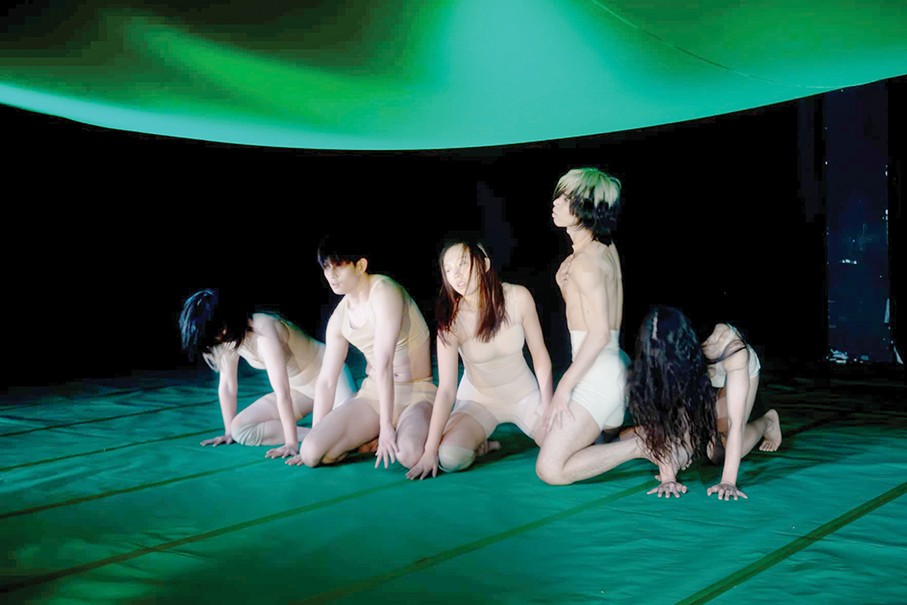
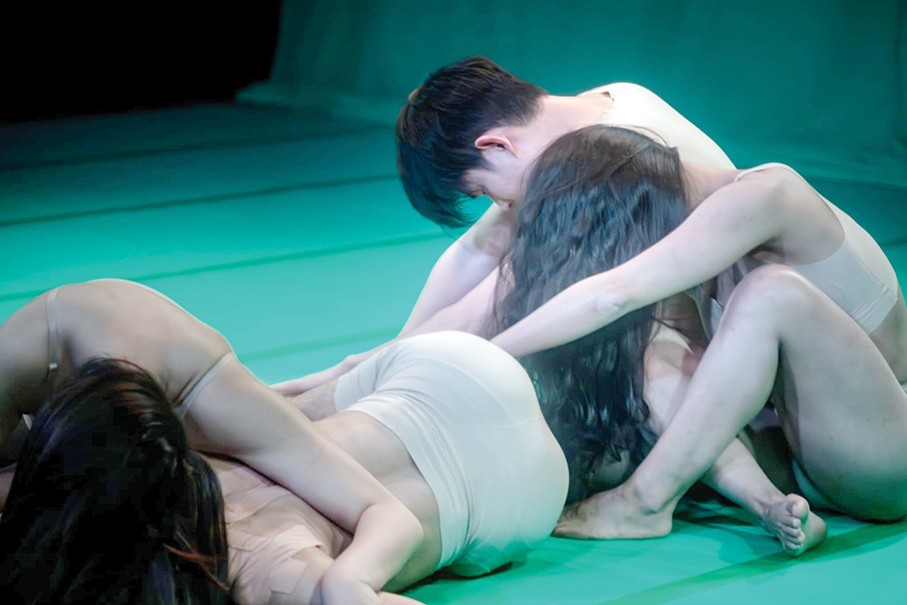
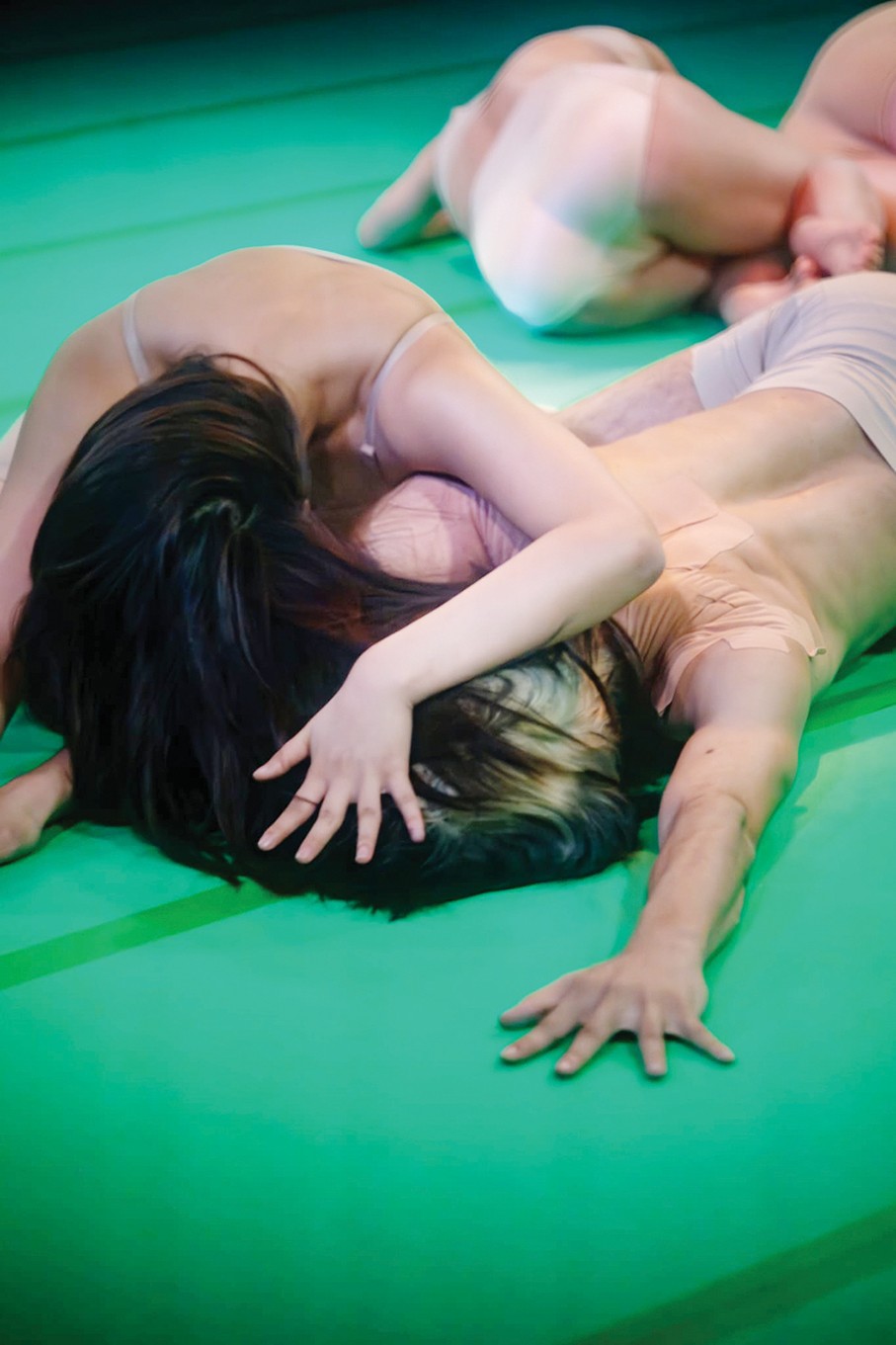
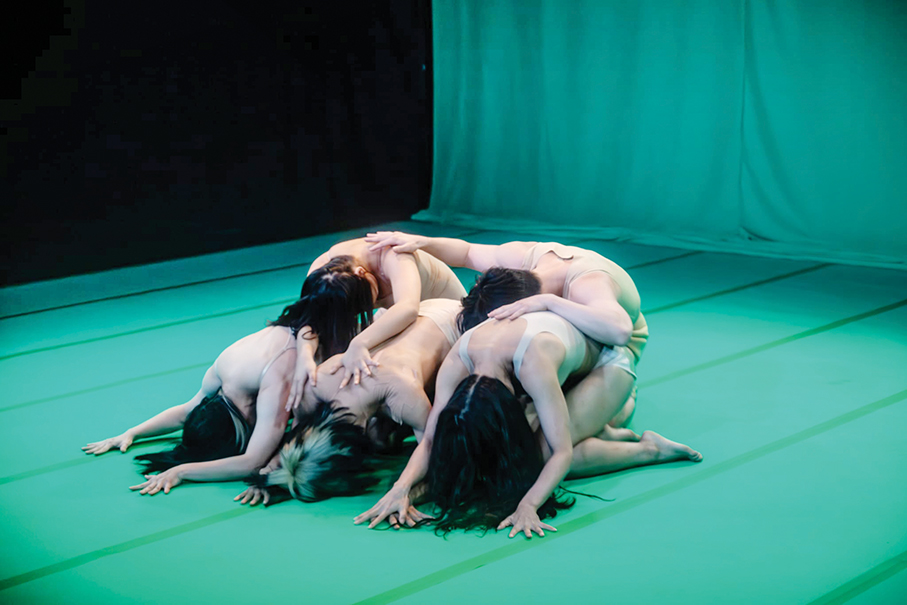
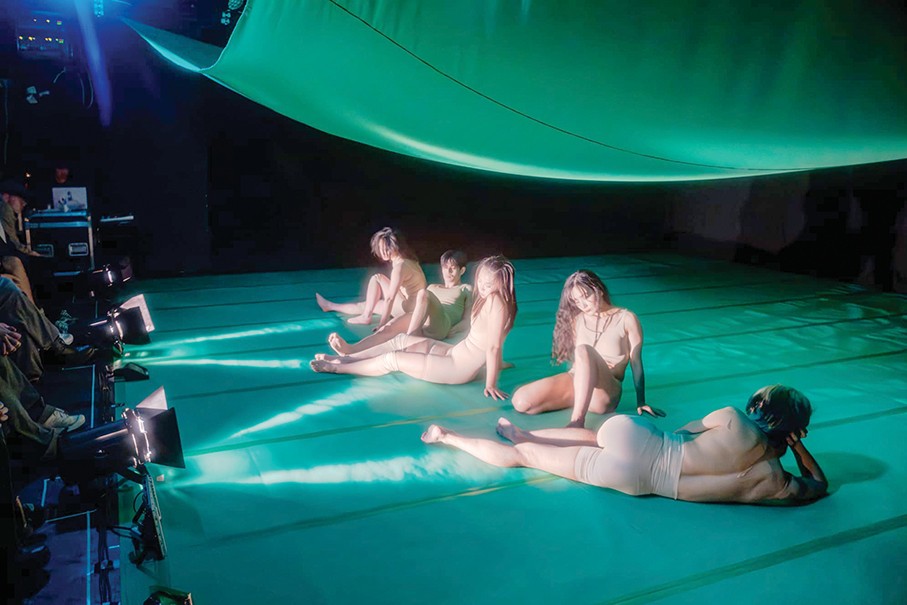
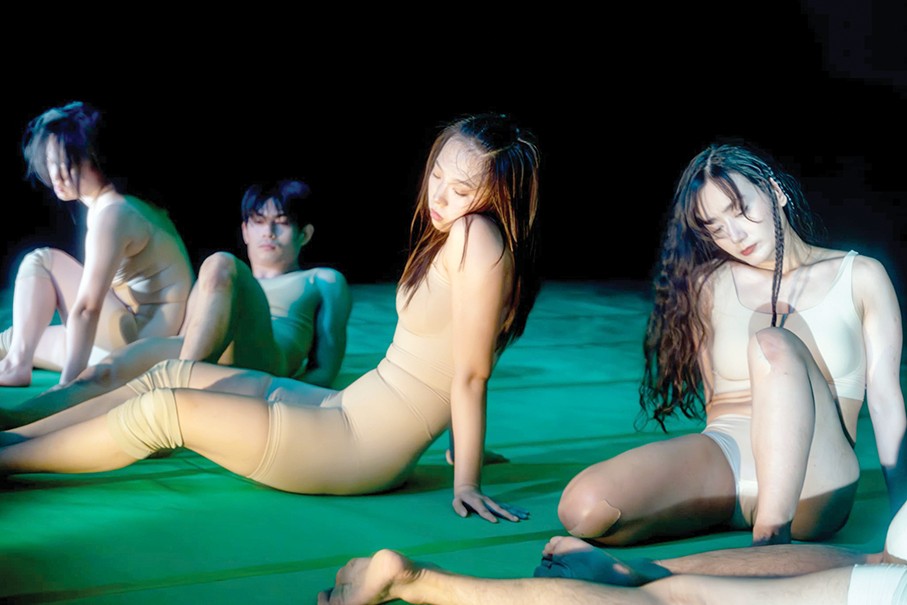
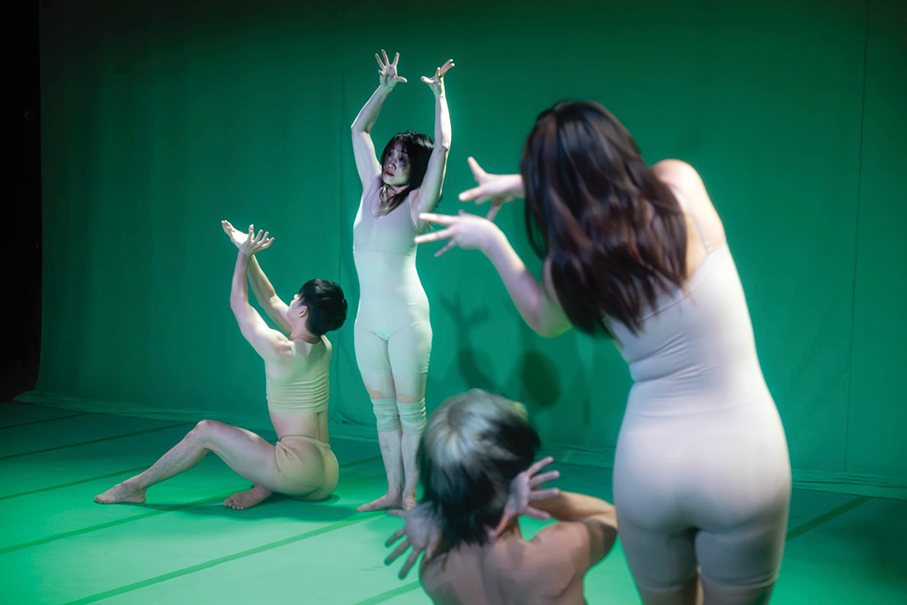
Lao Pui Lon, Liu Qingyu, Peng Mi, Wu Hui and Zhang Yutong perform on Friday at the T Theatre in Nape. – Photos provided by producer Chong Weng Kei





